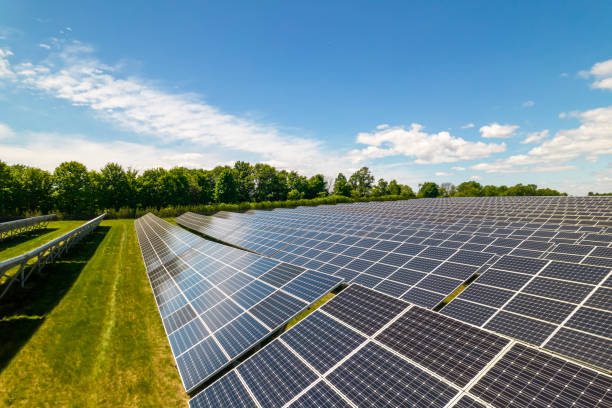In the quest for sustainable energy sources, solar power stands out as a beacon of hope. The utilization of solar panels has gained significant momentum over the years, and for good reason. Beyond just being environmentally friendly, solar energy offers a multitude of benefits that make it an attractive option for homeowners, businesses, and governments alike. Let’s delve into six compelling advantages of incorporating solar panels into our energy infrastructure.
Renewable and Sustainable
Solar energy is a renewable resource, meaning it is virtually inexhaustible as long as the sun continues to shine, which is estimated to be for another 5 billion years. Unlike finite fossil fuels such as coal, oil, and natural gas, solar power provides an abundant and sustainable energy solution. This characteristic ensures energy security for future generations and reduces dependence on non-renewable energy sources.
Reduction of Electricity Bills
One of the most appealing benefits of installing solar panels is the potential for significant savings on electricity bills. Once the initial investment is made, solar energy production is essentially free, with only minimal maintenance costs. Homeowners and businesses can generate their electricity, reducing or even eliminating their reliance on traditional utility companies. Moreover, in many regions, surplus energy generated by solární panely can be sold back to the grid, providing an additional source of income.
Environmental Impact
Harnessing solar energy produces minimal environmental pollution compared to conventional energy sources. Unlike fossil fuels, solar power generation does not emit greenhouse gases or harmful pollutants such as carbon dioxide, sulfur dioxide, or nitrogen oxides, which are major contributors to climate change and air pollution. By transitioning to solar energy, we can mitigate the adverse effects of global warming, protect ecosystems, and preserve the planet for future generations.
Energy Independence
Solar power grants individuals and communities a degree of energy independence by decentralizing energy production. Rather than relying solely on centralized power plants, which are vulnerable to disruptions and price fluctuations, solar panel owners can generate their electricity on-site. This decentralization of energy generation enhances resilience against power outages, natural disasters, and geopolitical instability. Additionally, it reduces the need for long-distance transmission lines, improving the overall efficiency of the energy grid.
Job Creation and Economic Growth
The rapid expansion of the solar industry has created a wealth of job opportunities and stimulated economic growth worldwide. From manufacturing and installation to maintenance and research, the solar sector employs millions of people across the globe. As governments and businesses continue to invest in renewable energy infrastructure, the demand for skilled workers in the solar industry is expected to rise further. Furthermore, the deployment of solar panels stimulates local economies by attracting investments, increasing property values, and fostering innovation in related industries.
Long-Term Investment and ROI
While the initial cost of purchasing and installing solar panels may seem daunting, it is important to view solar energy as a long-term investment rather than a short-term expense. With advancements in technology and economies of scale, the cost of solar panels has steadily declined, making them more affordable and accessible than ever before. Moreover, solar panels have a long lifespan of 25 years or more, during which they continue to generate clean energy and provide a reliable return on investment (ROI). Over time, the savings accrued from reduced electricity bills often outweigh the initial investment, resulting in substantial long-term financial benefits.
In conclusion, the adoption of solar panels offers a plethora of advantages ranging from environmental sustainability and cost savings to energy independence and job creation. By harnessing the power of the sun, we can mitigate climate change, reduce our dependence on fossil fuels, and build a more resilient and equitable energy future. As technology continues to improve and awareness grows, solar energy will play an increasingly vital role in powering our world sustainably.


